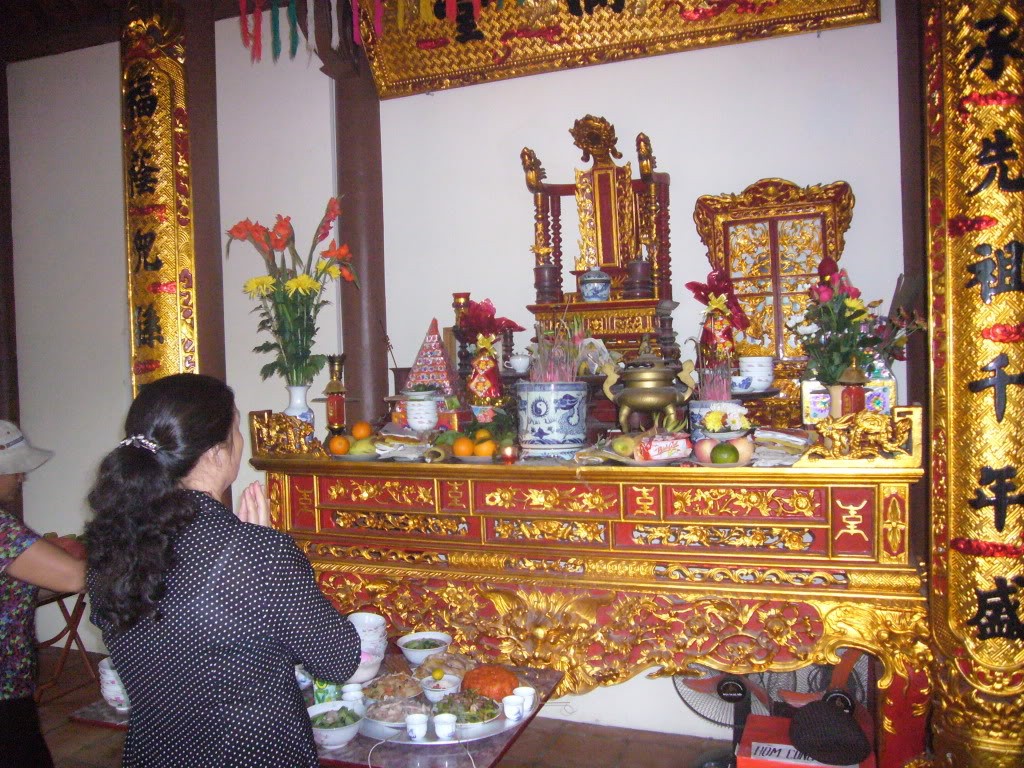Vietnam ancestral worship is not merely a religious practice—it is a cornerstone of Vietnamese culture, reflecting deep respect for family, tradition, and spiritual continuity. Rooted in centuries-old beliefs, this unique custom unites generations by honoring the deceased through rituals, offerings, and daily devotion at ancestral altars. For those seeking to understand the Vietnamese soul, exploring ancestral worship provides profound insights into the nation’s values, identity, and way of life.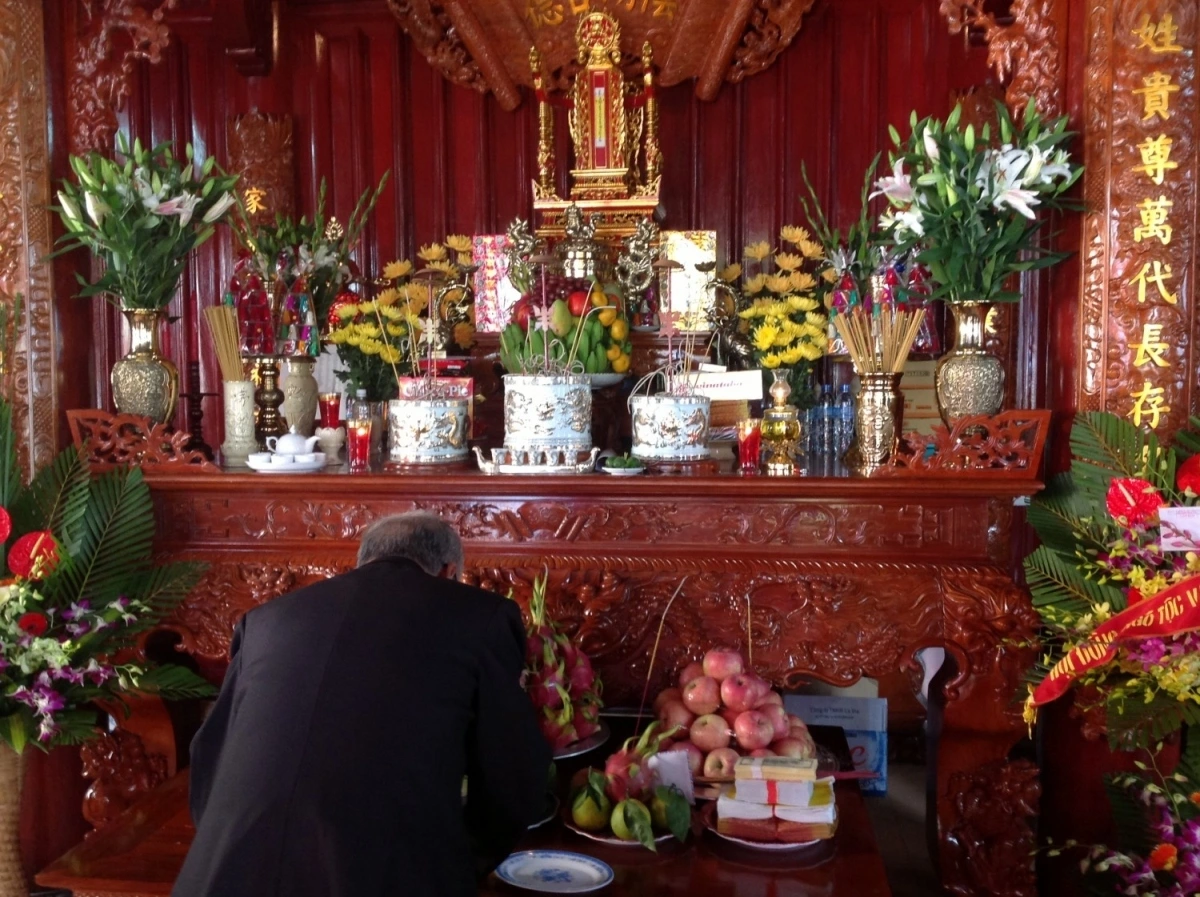
What Is Vietnam Ancestral Worship?
Among the many colorful threads that weave the fabric of Vietnamese culture, Vietnam ancestral worship stands out as a profound and deeply spiritual tradition. More than just a religious custom, it is a daily practice, a family value, and a national identity rooted in reverence for those who came before.
Vietnam ancestral worship is the act of honoring deceased relatives through rituals, offerings, and spiritual communication. This practice is not just limited to families—it is reflected in villages, professions, and even the nation’s reverence for its legendary founders, the Hùng Kings. This article will take you on a journey through the meaning, history, rituals, cultural significance, and contemporary relevance of ancestral worship in Vietnam.
The Origins of Vietnam Ancestral Worship
Ancient Roots in Indigenous Beliefs
The roots of Vietnam ancestral worship trace back thousands of years, long before the influence of foreign religions. Early Vietnamese societies, especially those built on rice agriculture and clan-based communities, developed a strong sense of continuity between the living and the dead.
Vietnamese ancestors were not only remembered—they were believed to continue watching over their descendants. This belief was intertwined with the idea that each family line, or “dòng họ,” had a shared origin, and maintaining that link was both a spiritual and social duty.
Influence from Confucianism, Buddhism, and Taoism
During Chinese rule (111 BCE – 938 CE), Confucianism brought with it a strong emphasis on filial piety (hiếu), formalizing ancestral rites and integrating them into moral teachings. Later, Buddhism introduced ideas of karma and rebirth, while Taoism added mystical concepts such as the spirit world and ritual practices.
This blend of philosophies did not replace Vietnam’s indigenous customs. Instead, it created a unique form of Vietnam ancestral worship that is both highly spiritual and deeply practical.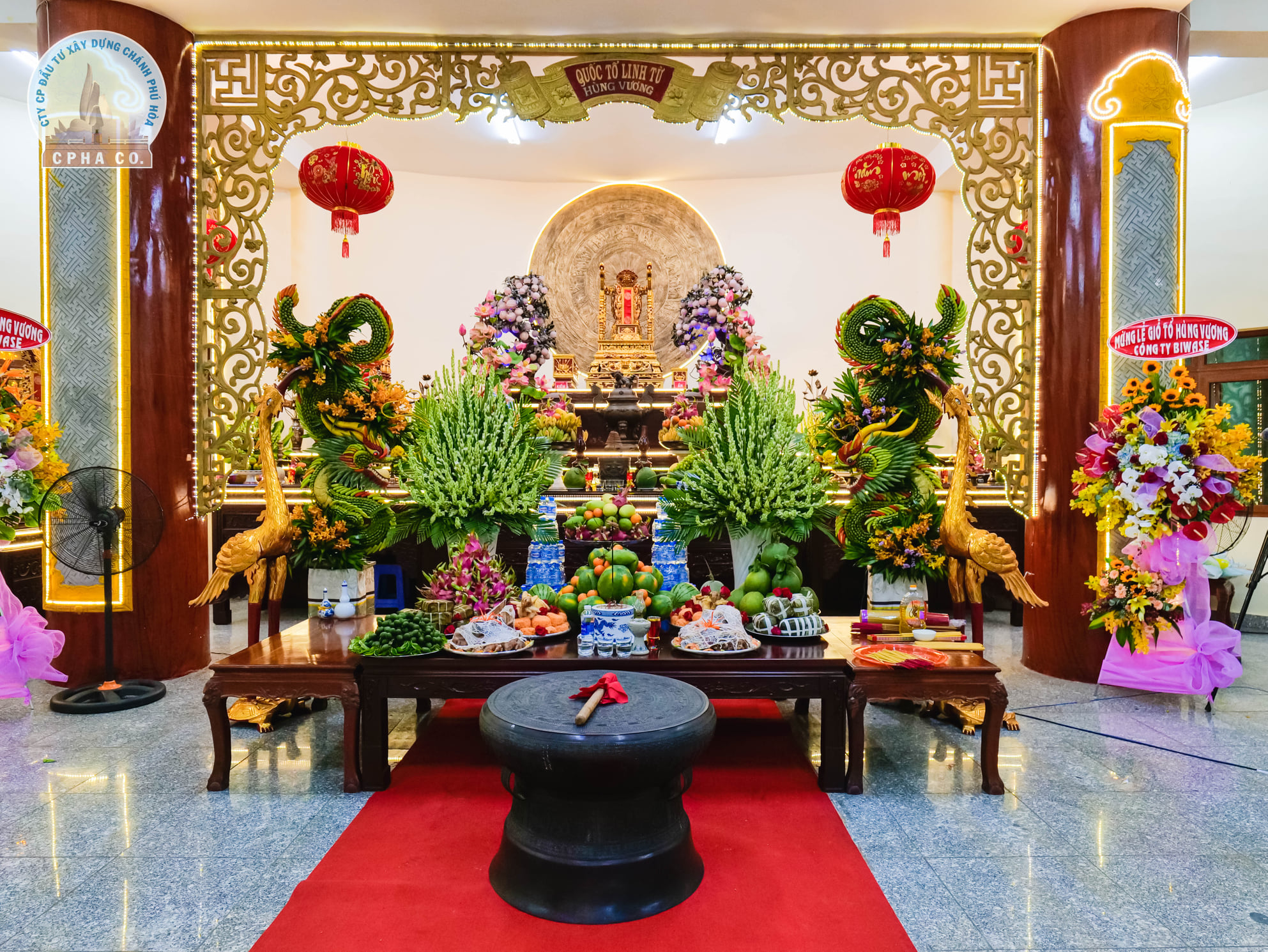
Key Beliefs Behind Vietnam Ancestral Worship
The practice of Vietnam ancestral worship is based on several key beliefs:
- Spirits continue to exist: Ancestors do not vanish after death. Their spirits remain near their families, offering protection or expressing discontent depending on how they are remembered and honored.
- The family is eternal: The living are just one part of a larger family that includes past and future generations. By worshipping ancestors, families remain connected across time.
- Respect brings harmony: Paying respect to one’s ancestors promotes peace within the family and attracts blessings for health, prosperity, and success.
The Family Altar: Center of Ancestral Worship in Vietnam
At the heart of Vietnam ancestral worship is the family altar—or “bàn thờ gia tiên.” Found in nearly every Vietnamese home, this sacred space is where family members connect with their deceased loved ones.
What You’ll Find on a Family Altar
- Incense burner: A central element, as smoke is believed to carry prayers to the spirit world.
- Photos or ancestral tablets: Representing the spiritual presence of the deceased.
- Offerings: Seasonal fruits, flowers, traditional dishes, tea, wine, and sometimes paper money or symbolic gifts.
- Candles or lamps: Symbolizing the sun and moon, light and continuity.
The family altar is not just used during special ceremonies. Many Vietnamese light incense daily, especially in the evening, to greet or “speak” with their ancestors.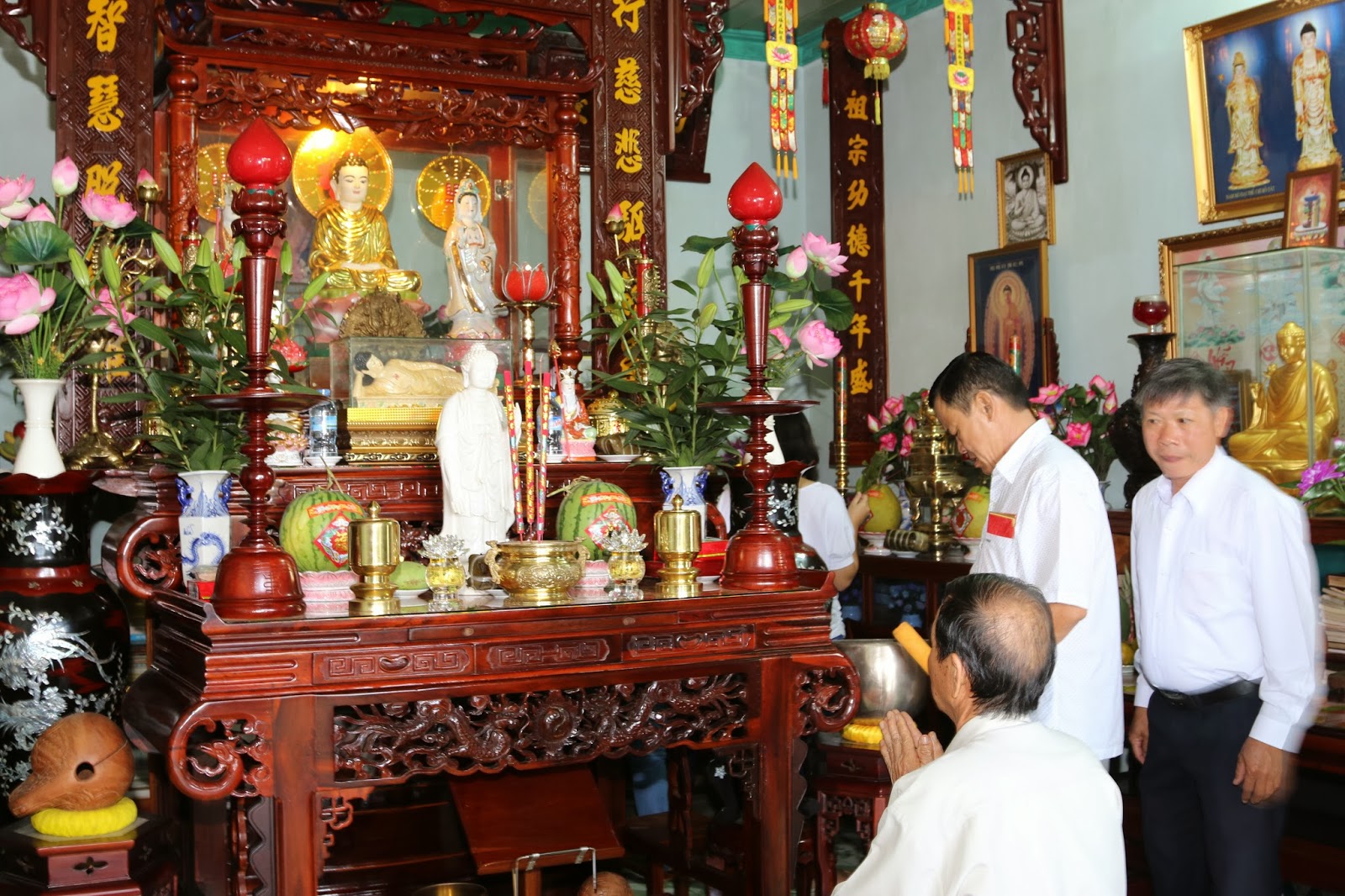
Important Rituals in Vietnam Ancestral Worship
Death Anniversaries (Lễ giỗ)
Perhaps the most important family ritual in Vietnam, a death anniversary (or “giỗ”) is held each year on the date of an ancestor’s passing. Families gather to clean the altar, prepare special meals, light incense, and offer prayers. It is both a solemn and communal occasion, often involving storytelling, remembrance, and shared meals.
Tết (Lunar New Year)
During Tết, the most significant holiday in Vietnam, ancestral worship takes center stage. Families invite the spirits of ancestors to “come home” for the New Year. Offerings are made, and the altar is meticulously cleaned. It is believed that honoring ancestors during Tết ensures their blessings for the year ahead.
Major Life Events
Before weddings, births, housewarmings, or important exams, Vietnamese often light incense to inform their ancestors and seek their guidance or approval.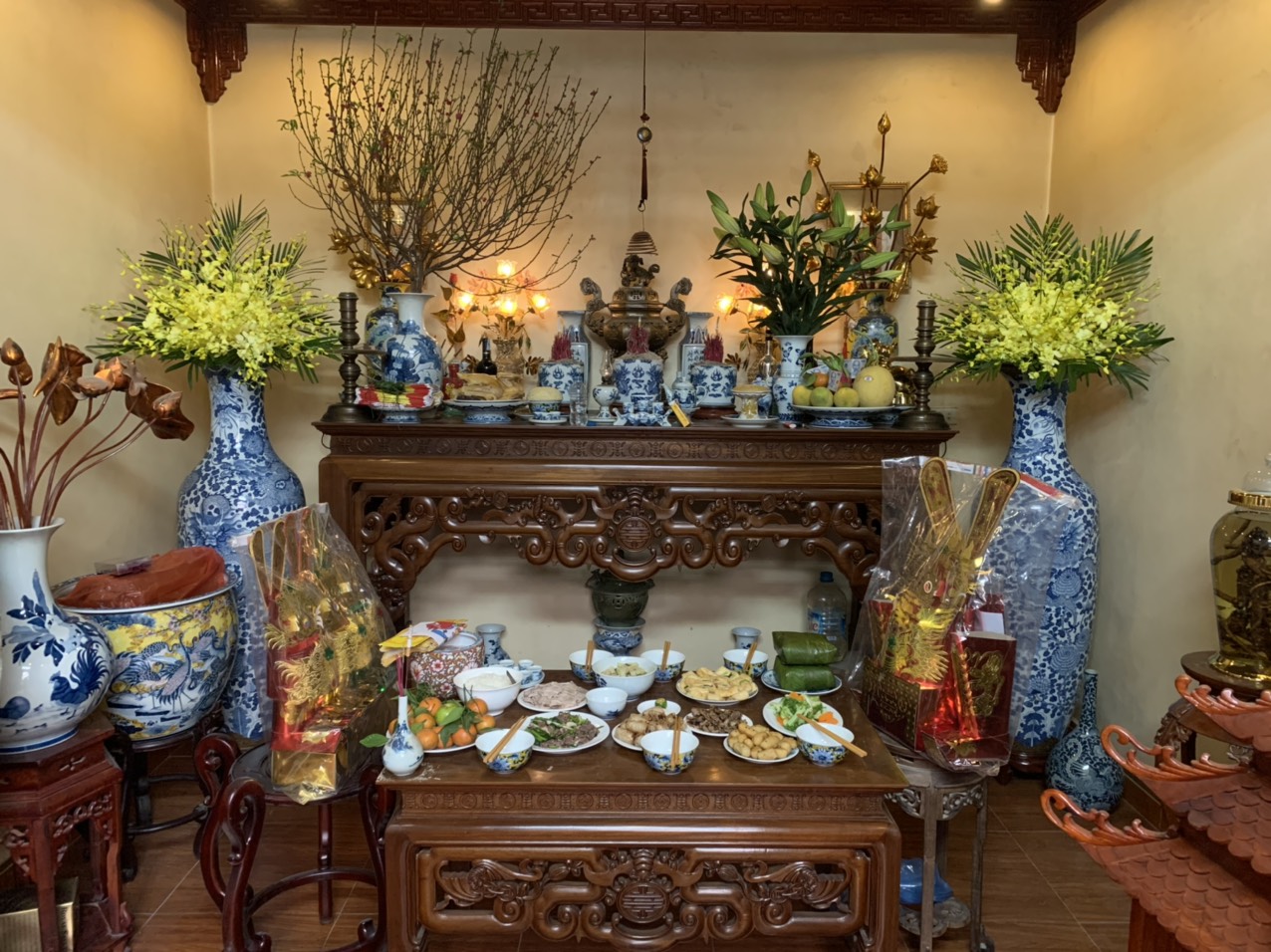
Ancestral Worship at Community and National Levels
While Vietnam ancestral worship is most visible in the home, it also extends to larger social and national practices.
Village Temples (Đình Làng)
Each village typically has a communal house or temple where residents worship the Thành Hoàng—the village’s patron deity, often the village founder or a hero from history. These community rituals are a form of ancestral worship at the village level, strengthening local identity and unity.
Worship of the Hùng Kings
Perhaps the most iconic form of national ancestral worship is the veneration of the Hùng Kings, believed to be the legendary founders of the Vietnamese nation. Every year on the 10th day of the third lunar month, Vietnamese people across the country (and overseas) participate in ceremonies to honor the ancestors of the entire nation. In 2012, UNESCO recognized this tradition as an Intangible Cultural Heritage of Humanity.
Integration into Vietnamese Religions
Catholicism and Ancestral Worship
In the past, Catholic missionaries discouraged ancestral worship, fearing it conflicted with monotheism. However, since the 20th century, the Vatican has allowed Vietnamese Catholics to honor their ancestors as a cultural—not religious—practice. Today, many Vietnamese Catholic families have altars and participate in death anniversaries, especially during weddings and funerals.
Indigenous Religions
Newly emerged religious movements like Caodaism, Tứ Ân Hiếu Nghĩa, and Phật giáo Hòa Hảo embrace ancestral worship as part of their core beliefs. These religions incorporate ancestor veneration into their doctrine, often under the broader concept of “Four Gratitudes” (Tứ Ân), which include gratitude toward:
- Ancestors and parents
- The nation
- Humanity
- The divine
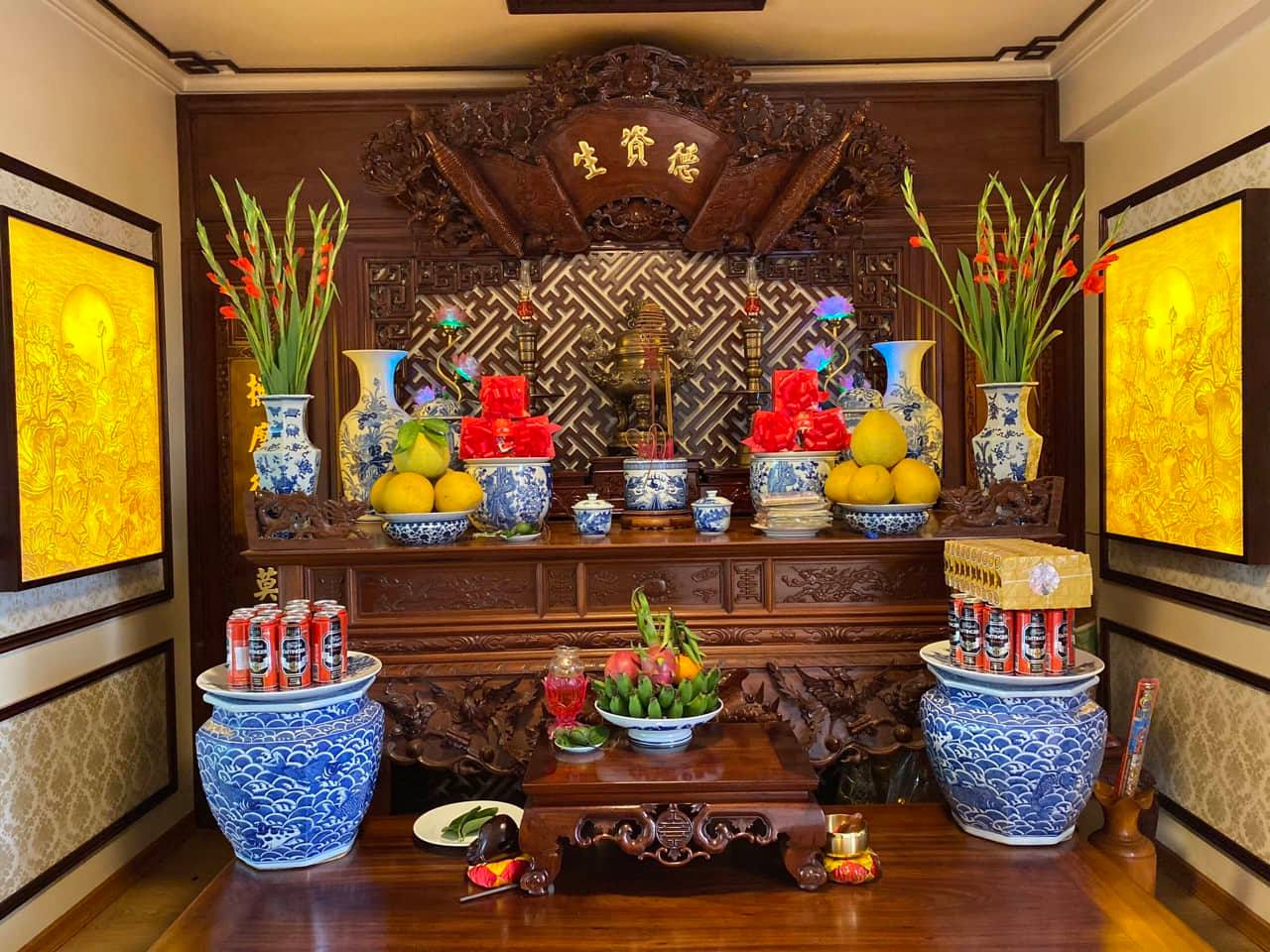
Symbolism and Philosophy Behind Vietnam Ancestral Worship
Vietnam ancestral worship is more than ritual—it’s a philosophy of life:
- Connection across generations: Life is seen as a continuum, with birth and death as transitions, not endings.
- The soul is immortal: Ancestors are believed to dwell in another realm, where they can influence events in the physical world.
- Good deeds reflect on the family: Living a moral life honors one’s ancestors and brings honor to the family name.
The practice teaches young Vietnamese about responsibility, heritage, and respect—values that underpin many social behaviors.
Modern Practice and Globalization
Urbanization and Changing Lifestyles
In cities, space constraints have transformed how Vietnam ancestral worship is practiced. Many apartments now have compact altars, and rituals are simplified. Yet, the spiritual intention remains unchanged.
Technology also plays a role—some Vietnamese use virtual memorials, online tribute platforms, and social media to remember their ancestors, especially when living far from home.
Overseas Vietnamese Communities
For the Vietnamese diaspora, ancestral worship is a vital link to their homeland. From California to Paris to Sydney, Vietnamese families maintain altars, observe death anniversaries, and build temples to celebrate ancestral holidays. It keeps their cultural identity alive in foreign lands.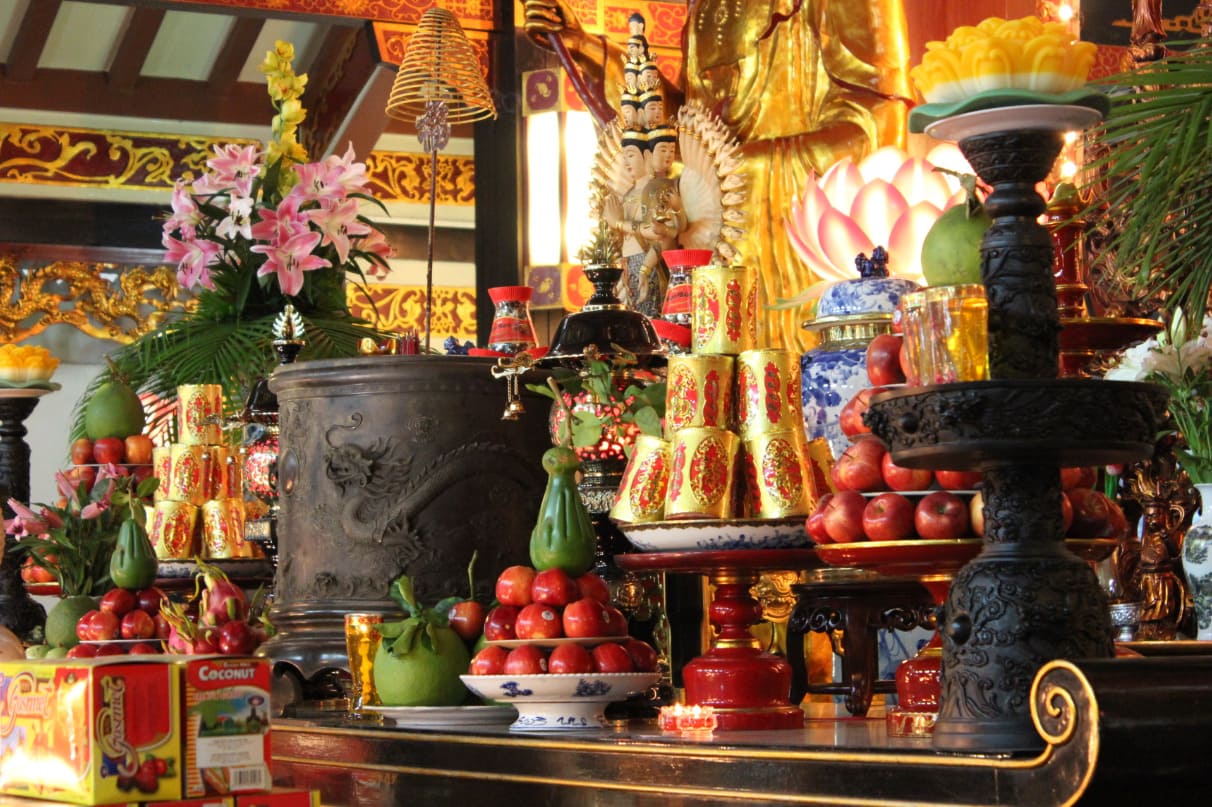
Why Vietnam Ancestral Worship Matters Today
As the world becomes more connected yet increasingly fragmented, Vietnam ancestral worship offers valuable insights:
- It demonstrates the power of cultural resilience in preserving identity through centuries of change.
- It shows that spirituality can coexist with modern life, technology, and urbanization.
- It reflects a worldview that values community, family, and memory, in contrast to individualistic cultures.
For foreigners visiting or living in Vietnam, understanding ancestral worship unlocks a deeper appreciation of Vietnamese society—from its family dynamics to national celebrations.
Visiting Vietnam? What to Expect
If you travel to Vietnam, here are ways to respectfully experience ancestral worship:
- Ask about the family altar if staying in a homestay. Most families are proud to share their traditions.
- Attend festivals such as Tết or the Hùng Kings’ Festival to witness large-scale ancestral rituals.
- Visit temples and communal houses where ancestral spirits are venerated.
- Observe respectfully during ceremonies—remove your shoes, bow slightly, and avoid touching the altar unless invited.
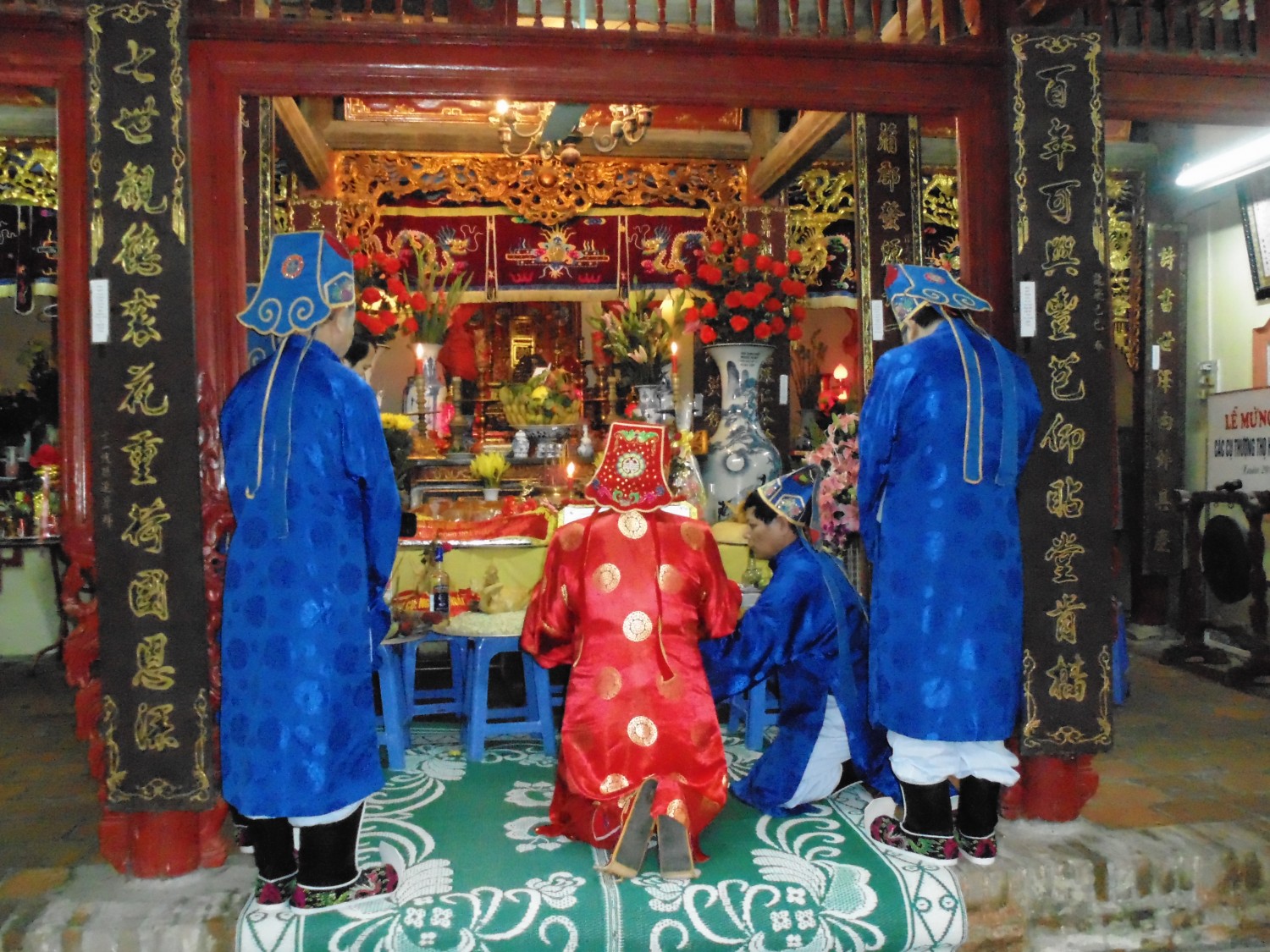
Conclusion: The Soul of a Nation Lives On
Vietnam ancestral worship is not merely a set of rituals; it is the soul of a people. It keeps families connected, communities united, and the nation’s heritage alive. In honoring their ancestors, the Vietnamese do more than remember—they celebrate life, morality, and continuity.
Whether you are a traveler, an expat, a researcher, or simply a curious soul, exploring this tradition will enrich your understanding of Vietnam and offer timeless lessons about love, gratitude, and belonging with Vietnam Culture.
See more post: Vietnamese pagodas: A spiritual journey through Vietnam’s most sacred pagodas

